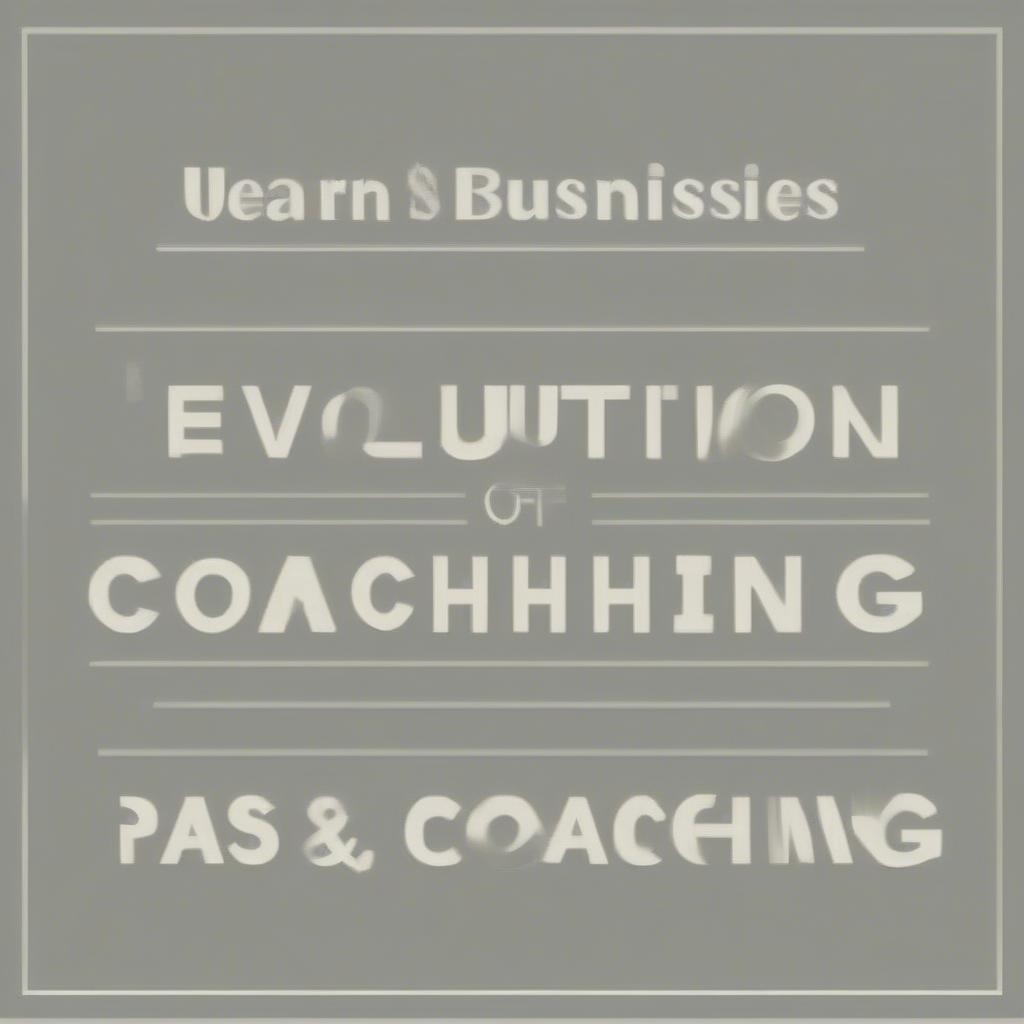
Retaining coaching clients is the lifeblood of any successful coaching practice. It’s far more cost-effective to nurture existing relationships than to constantly seek new ones. Focusing on client retention not only secures your income but also fosters a community of advocates who believe in your work. This article dives deep into actionable retention strategies that will help you cultivate lasting relationships with your long-term clients, ensuring their continued success and your business growth.
The Why Behind Client Retention: More Than Just Numbers
Before we jump into the “how,” let’s address the “why.” Why is retaining coaching clients so crucial? Beyond the obvious financial benefits, it’s about building a thriving, impactful practice.
Reduced Marketing Costs
Acquiring new clients requires time, energy, and often, significant marketing spend. Client retention minimizes the need for constant outreach. When clients stay with you long-term, you reduce reliance on expensive advertising and time-consuming lead generation activities.
Increased Client Value
Long-term clients are often your most profitable. As they continue to work with you, they typically invest more in advanced programs, packages, or specialized services. Their trust in your expertise also leads to higher lifetime value for your practice.
Referral Generation
Satisfied long-term clients become powerful advocates. They’re more likely to refer their friends, colleagues, and network to you, creating a natural source of new leads without additional marketing efforts. Their testimonials and positive word-of-mouth are invaluable.
Deeper Relationships and Impact
Long-term relationships allow you to dive deeper into your client’s needs, challenges, and aspirations. This deeper understanding enables you to provide more targeted, impactful coaching. You’re not just a coach; you become a trusted partner in their journey.
Stability and Predictability
A solid base of long-term clients provides stability and predictable income for your business. This predictability allows you to invest in your business, plan for the future, and dedicate more energy to your coaching.
Laying the Foundation: Pre-Coaching Strategies
Before you even begin coaching, you can set the stage for long-term relationships. A strong foundation built on transparency and effective communication is key.
1. Onboarding Processes That Wow
The onboarding process is your first chance to impress and establish trust. It sets the tone for the entire coaching relationship.
a. Welcome Packages
Create a comprehensive welcome package that outlines everything a new client needs to know. This could include:
- A detailed coaching agreement: Clearly outlining the scope of services, session frequency, communication protocols, payment terms, and cancellation policies.
- A welcome letter or video: Expressing your excitement to work with them and reiterating your commitment to their success.
- A client portal introduction: Explaining how to access scheduling, resources, and communication tools.
- A helpful checklist: Detailing what they can expect from the coaching process and what their responsibilities are.
b. Initial Consultation That’s Meaningful
Make the initial consultation more than a sales pitch. Use it as an opportunity to genuinely connect, understand their goals, and establish realistic expectations.
- Active listening: Pay close attention to their story, challenges, and desires.
- Clear expectations: Outline what coaching is and isn’t, what results they can expect, and how you will work together.
- Personalized plan: Discuss their specific goals and tailor the coaching approach to their individual needs.
- Answering questions thoroughly: Address all their concerns and doubts to build trust.
c. Setting Clear Expectations
Be upfront about the coaching process, timelines, and the level of commitment required from both sides. This avoids any surprises down the line.
- Define the scope: Specify the areas where you will focus your efforts.
- Outline the process: Explain the steps involved in your coaching methodology.
- Clarify communication: Define how and when you will communicate outside of scheduled sessions.
- Discuss realistic outcomes: Don’t promise miracles, be transparent about the work involved.
2. Defining and Measuring Success
Help your clients understand what success looks like and how it will be measured. This provides tangible goals and creates a sense of progress.
a. Goal Setting Collaboration
Work collaboratively with clients to define specific, measurable, achievable, relevant, and time-bound (SMART) goals.
- Active participation: Involve them in the goal-setting process to increase their ownership and motivation.
- Break down big goals: Divide large goals into smaller, manageable steps.
- Prioritize effectively: Focus on the most impactful goals that align with their overall objectives.
b. Tracking Progress and Celebrating Wins
Regularly track progress against established goals and celebrate milestones, no matter how small. This helps clients feel acknowledged and motivated.
- Regular check-ins: Schedule periodic reviews to assess progress and adjust strategies.
- Data visualization: Use charts and graphs to visualize progress and demonstrate impact.
- Acknowledge accomplishments: Recognize their efforts and celebrate their wins.
c. Feedback and Adaptation
Be open to feedback and willing to adjust your coaching approach based on client needs and progress.
- Regular feedback sessions: Schedule dedicated time to collect and discuss their feedback.
- Adaptive strategies: Be flexible and willing to modify your plan to better support their goals.
- Continuous improvement: Use feedback to refine your coaching process and enhance your effectiveness.
During the Coaching Journey: Nurturing the Relationship
Once the coaching starts, maintaining engagement and demonstrating value is crucial for fostering long-term relationships.
1. Consistent, Quality Sessions
The actual coaching sessions are where you showcase your expertise and create the most direct impact.
a. Preparation and Structure
Come prepared for each session with a clear agenda and a structured approach.
- Pre-session review: Review previous notes and action items before each session.
- Session outline: Follow a structured format that includes check-in, progress updates, focused work, action planning, and summary.
- Time management: Be mindful of time and ensure that all topics are addressed effectively.
b. Active Listening and Empathy
Demonstrate genuine interest in your client’s experiences and needs.
- Full attention: Minimize distractions and give them your undivided attention.
- Empathetic responses: Acknowledge their feelings and challenges.
- Non-judgmental approach: Create a safe space for them to be vulnerable and honest.
c. Challenging Yet Supportive
Push your clients to grow, but do so in a supportive and encouraging way.
- Constructive feedback: Provide honest feedback that is focused on their growth.
- Encouragement and motivation: Inspire them to reach their full potential.
- Accountability partners: Help them stay on track and committed to their goals.
2. Value Beyond Sessions
Providing value outside of scheduled sessions can significantly enhance client experience and loyalty.
a. Personalized Resources and Tools
Tailor resources and tools to your client’s unique needs and challenges.
- Customized worksheets and templates: Design tools that address their specific goals and learning styles.
- Relevant articles and videos: Share resources that expand their knowledge and skills.
- Book recommendations: Suggest books and other materials that can support their development.
b. Check-in Between Sessions
Show that you care by checking in with them between sessions.
- Quick email or text: A brief note to acknowledge their progress and offer encouragement.
- Follow up on action items: Check in on their progress and offer assistance if needed.
- Share relevant information: Send articles or resources that they might find helpful.
c. Access to a Community
Create opportunities for clients to connect with each other and build a supportive community.
- Private online group: Facilitate conversations and provide a space for sharing and support.
- Group coaching sessions: Host sessions where clients can learn from each other’s experiences.
- In-person networking events: Organize opportunities for clients to connect and build relationships.
3. Open and Consistent Communication
Keep the lines of communication open and make it easy for clients to reach you.
a. Prompt Responses
Respond to emails and messages promptly and professionally.
- Dedicated time: Set aside specific times each day to respond to client communications.
- Clear communication channels: Define the preferred methods for client contact.
- Professional tone: Maintain a professional and respectful tone in all interactions.
b. Transparency
Be transparent in your communication and address any concerns honestly.
- Updates and progress reports: Keep clients informed about their progress and any adjustments to the plan.
- Open to feedback: Be receptive to feedback and address any issues promptly.
- Clear boundaries: Define your availability and establish communication expectations.
c. Regular Check-ins About Satisfaction
Periodically check in with your clients to gauge their satisfaction with your services.
- Formal satisfaction surveys: Use questionnaires to gather feedback and identify areas for improvement.
- Informal feedback sessions: Schedule discussions to check in on their experience and collect feedback.
- Action on feedback: Use feedback to improve your service and demonstrate that you value their input.
End of Coaching Engagement: Transitioning to Long-Term
Even when the formal coaching engagement ends, you can still foster long-term connections.
1. Gradual Transition and Support
Avoid sudden endings and offer a smooth transition plan.
a. Post-Coaching Plan
Create a plan that helps clients maintain momentum after coaching ends.
- Review of progress: Summarize achievements and outline strategies for continued success.
- Maintenance plan: Provide a framework for ongoing self-coaching and development.
- Actionable steps: Help them identify and prioritize next steps.
b. Ongoing Support Options
Offer ways for clients to continue to engage with you on a less intensive level.
- Check-in calls: Provide periodic follow-up sessions for accountability and support.
- Access to resources: Continue providing access to helpful materials and tools.
- Alumni network: Create a network for past clients to connect and support each other.
2. Continuing to Demonstrate Value
Demonstrate your ongoing value even after the coaching engagement has concluded.
a. Value Added Content
Continue to provide valuable content that keeps you top-of-mind.
- Regular newsletters: Share insightful articles, tips, and resources related to their goals.
- Social media engagement: Share engaging content and interact with past clients.
- Webinars and events: Host online and in-person events that offer continued learning opportunities.
b. Referral Programs
Incentivize clients to refer new business to you.
- Referral bonuses: Offer discounts or other rewards for referrals.
- Testimonial requests: Request testimonials and case studies from satisfied clients.
- Referral tracking: Implement systems to track referrals and reward loyal clients.
3. Building a Long-Term Relationship
View the end of a coaching engagement as a transition to a new phase of a long-term relationship.
a. Stay Connected
Maintain personal connections with past clients through different channels.
- Personalized notes: Send birthday cards or congratulatory messages for achievements.
- Keep in touch: Reach out periodically to see how they are progressing and offer support.
- Attend social events: Invite past clients to events or casual get-togethers.
b. Be a Resource
Be a valuable resource to past clients and provide continued support when needed.
- Access to resources: Continue to provide access to helpful materials and tools.
- Advisory role: Offer guidance and support when they encounter new challenges.
- Professional connections: Connect them with relevant professionals in your network.
Leveraging Learn Business to Enhance Your Coaching Practice
Learn Business is designed to support businesses like yours, providing tools and guidance that can make client retention smoother and more effective.
Streamlining Your Operations with Learn Business
Learn Business offers a range of solutions that can help you streamline your operations and improve the client experience.
- Customizable Templates: Access professional templates for coaching agreements, session outlines, progress reports, and more, saving you time and ensuring consistency.
- Client Management Tools: Utilize tools to manage client information, schedule sessions, and track progress, all in one place.
- Marketing Resources: Access a library of marketing templates and guides to support your client acquisition and retention strategies.
Tailored Support for Your Coaching Business
Learn Business understands the unique needs of coaching practices and provides tailored solutions.
- Business Planning Guidance: Get expert advice on creating a sustainable business plan for your coaching practice.
- Marketing Strategy Development: Develop a marketing strategy that targets your ideal client and drives client retention.
- Financial Management Tools: Utilize financial tools to track your income, expenses, and profitability.
Enhancing Your Client Relationships with Learn Business
Learn Business can help you build stronger, longer-lasting relationships with your clients.
- Client Portal Solutions: Provide a seamless experience for clients with personalized portals for resources, communication, and appointment scheduling.
- Communication Tools: Streamline your communication with clients through integrated messaging and email capabilities.
- Performance Tracking: Utilize performance tracking tools to monitor client progress and demonstrate the value of your coaching.
Conclusion: Investing in Long-Term Client Relationships
Retaining coaching clients is not just about keeping your schedule full; it’s about building a sustainable, impactful, and rewarding coaching practice. By focusing on strategies from the pre-coaching stage to long after the engagement ends, you create a community of loyal clients who contribute to your success. Implement these actionable steps, leverage the resources offered by Learn Business, and watch your client retention rates soar. Remember, your long-term clients are your greatest assets and advocates. Nurture those relationships, and you’ll build a thriving practice for years to come.



Leave a Reply